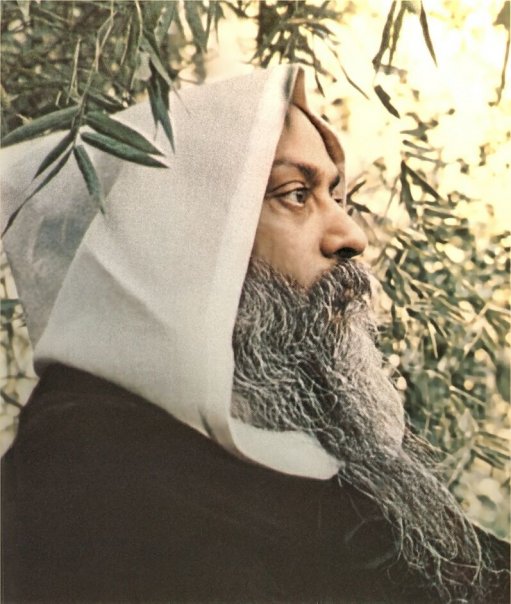Question – Osho, Is there Quality in Nothingness?
Osho – Anudeya, NOTHINGNESS CAN EITHER BE just emptiness or it can be a tremendous fullness. It can be negative, it can be positive. If it is negative it is like death, darkness. Religions have called it hell. It is hell because there is no joy in it, no song in it, there is no heartbeat, no dance. Nothing flowers, nothing opens. One is simply empty.
This empty nothingness has created great fear in people. That’s why in the West particularly, God has never been called nothingness except by a few mystics like Dionysius, Eckhart, Boehme; but they are not the main current of Western thinking. The West has always conceived nothingness in negative terms; hence it has created a tremendous fear about it. And they go on saying to people that the empty mind is the Devil’s workshop.
The East has known its positive aspect too; it is one of the greatest contributions to human consciousness. Buddha will laugh at this statement that emptiness is the Devil’s workshop. He will say: Only in emptiness, only in nothingness, does godliness happen. But he is talking about the positive phenomenon.
For Gautam Buddha, for Mahavira, for the long tradition of Zen Masters and the Taoists, nothingness simply means no-thingness. All things have disappeared, and because things have disappeared there is pure consciousness left behind. The mirror is empty of any reflection, but the MIRROR IS there. Consciousness is empty of content, but CONSCIOUSNESS IS there.
And when it was full of content, so many things were inside you could not have known what it is. When the consciousness is full of contents, that’s what we call mind. When consciousness is empty of all contents, that’s what we call no-mind or meditation. To create nothingness in you is the goal of meditation, but this nothingness has nothing to do with the negative idea. It is full, abundantly full. It is so full that it starts overflowing.
Buddha has defined this nothingness as overflowing compassion. The word “compassion” is beautiful. It is made out of the same word as “passion.” When passion is transformed, when the desire to seek and search for the other is no more there, when you are enough unto yourself, when you don’t need anybody, when the very desire for the other has evaporated, when you are utterly happy, blissful, just being alone, then passion becomes compassion.
Now you don’t seek the other because you are feeling empty and lonely; now you seek the other because you are too full and you would like to share. The enlightened person also seeks the other just as the unenlightened person seeks, but there is a qualitative difference. The unenlightened person seeks the other because he feels a negative nothingness in him. Left alone he does not feel aloneness, he feels loneliness.
Remember, loneliness and aloneness are not synonymous, notwithstanding what the dictionaries go on saying. It is not a question of language; it is something existential. Loneliness is negative — you are missing something; aloneness is positive — you have found something.
The unenlightened seeks the other because it is his need; he is needy and greedy. He grabs the other, he clings to the other. He is always afraid the other may leave. Husbands are afraid, wives are afraid, parents are afraid, children are afraid, everybody is afraid. Even your so-called religious teachers are afraid their disciples may leave them, so they have to concede and compromise with the disciples. Can you see the irony of it?
